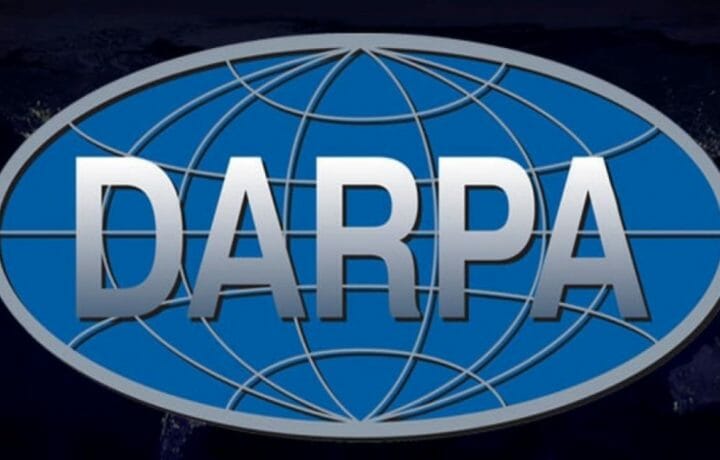DARPA has selected three industry corporations for the Underexplored Systems for Utility-Scale Quantum Computing (US2QC) program. US2QC seeks to determine whether an underexplored approach to quantum computing is capable of achieving utility-scale operation – meaning its computational value exceeds its cost – much faster than conventional predictions.
“Experts disagree on whether a utility-scale quantum computer based on conventional designs is still decades away or could be achieved much sooner,” said Joe Altepeter, US2QC program manager in DARPA’s Defense Sciences Office. “The goal of US2QC is to reduce the danger of strategic surprise from underexplored quantum computing systems. We put out a call last year saying that if anyone thought they had a truly revolutionary approach to building a useful quantum computer in the near future – less than 10 years – we wanted to hear from them. We offered to collaborate by funding additional experts to join their team and provide rigorous government verification and validation of their proposed solutions to determine its viability. The ultimate outcome of the program is a win-win — for U.S. commercial leadership in this strategically important technology area and for national security to avoid being surprised.”
DARPA has selected the following companies and their novel approaches for the initial phase:
- Atom Computing, based in Berkeley, CA, builds highly scalable quantum computers based on large arrays of optically-trapped atoms.
- Microsoft Corporation, Redmond, WA, is building an industrial-scale quantum system based on a topological qubit architecture, which the company theorizes would enable their machine to be small enough to fit in a closet, fast enough to solve problems in a practical timeframe and have the capability to control more than one million qubits.
- PsiQuantum, Corp., Palo Alto, CA, is using silicon-based photonics to create an error-corrected quantum computer based on a lattice-like fabric of photonic qubits.
In the initial phase of US2QC, these companies will each present a design concept describing their plans to create a utility-scale quantum computer. This design concept will guide a more rigorous system design focused on all of the components and sub-systems that — once constructed and tested — will show that the utility-scale quantum computer can be built as designed and operated as intended. A DARPA-led test and validation team comprising experts from government laboratories and federally funded research and development centers will evaluate the concepts.
US2QC is envisioned to be a five-year program comprising four phases.
Altepeter said, “It has been credibly hypothesized that quantum computers will revolutionize multiple scientific and technical fields within the next few decades. Examples include machine learning, quantum chemistry, materials discovery, molecular simulation, many-body physics, classification, nonlinear dynamics, supply chain optimization, drug discovery, battery catalysis, genomic analysis, fluid dynamics, and protein structure prediction.”
Contract Opportunities to Watch: Lumen
Lumen Technologies recently won a $223 million contract from the U.S. Defense Information Systems Agency (DISA). On the contract, Lumen will provide secure, mission-critical communications services to theDoD.
“The U.S. Department of Defense has a far-reaching mission to provide military forces to deter war and ensure our nation’s security. DoD selected Lumen to deliver voice communications services that will help it carry out its important mission using today’s technologies,” said Zain Ahmed, senior vice president, Lumen public sector. “DoD is modernizing its network and leveraging cloud-based technologies like the new voice system enabled by Lumen that securely connects our troops with modern communications tools wherever they are.”
The $223 million task order has a base performance period of one year, with three additional one-year options and a potential six-month extension. Lumen got the award under the General Services Administration’s 15-year, $50 billion Enterprise Infrastructure Solutions (EIS) program.
Tyto Government Solutions, Inc. is a strategic subcontractor to Lumen. The two companies are working to fulfill the order’s technical requirements by delivering phone and conferencing services from highly available, resilient cloud data centers that meet DoD Impact Level 5 (IL5) security standards.
Key Employer in the Cleared Industry: Deloitte
SPONSORED CONTENT: This content is written on or behalf of our Sponsor.
Cleared Opportunities
George Mason University will receive $1 million in federal funding to create the Mason Center for Excellence in Government Cybersecurity Risk Management and Resilience. Funding for this effort came as part of the federal omnibus appropriations bill recently signed into law to fund the government through Fiscal Year 2023.
The future Center for Excellence in Government Cybersecurity Risk Management and Resilience will act as a strategic partner in federal government cybersecurity and IT modernization efforts. Additionally, the center will translate state-of-the-art research on technology modernization and cybersecurity in federal practice. And with it’s northern Virginia location, the center is in a key location to collate and disseminate best practices on federal government agency cybersecurity, fostering U.S. government cybersecurity organizational capacity.
The center will bring together experts in IT modernization, cybersecurity, and critical infrastructure systems to develop and provide in-person, hybrid, live virtual, and online executive education, tabletop exercises and workshops for federal government IT and cybersecurity executives and middle managers. In addition, the center will leverage Mason’s Institute for Digital Innovation, which integrates transdisciplinary centers and labs with deep interdisciplinary expertise across all facets of cybersecurity research, governance, policy, and education.




